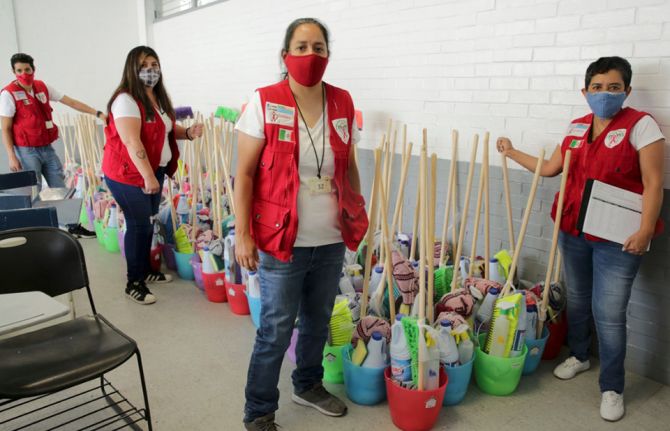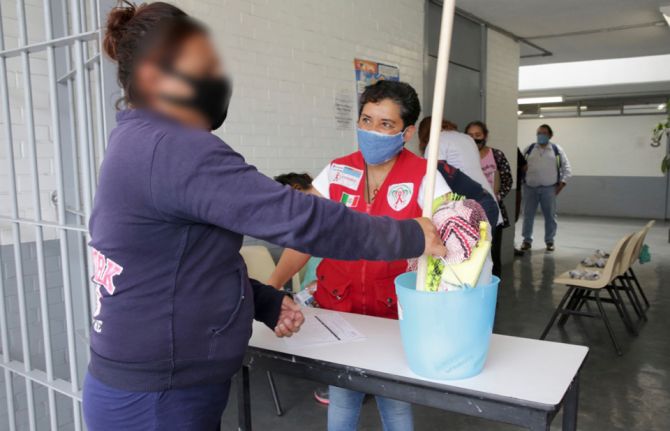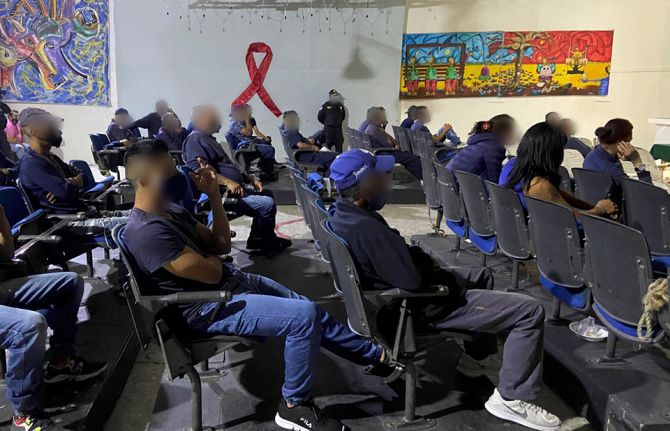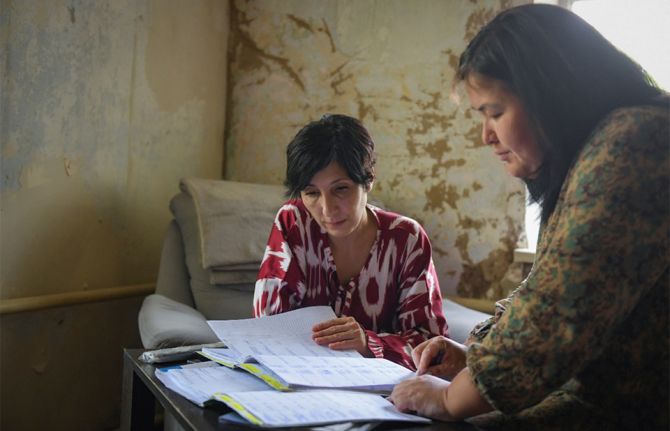



Feature Story
Protecting prisoners from HIV and COVID-19 in Mexico
14 May 2021
14 May 2021 14 May 2021“AIDS came to my door as a surprise. It all started in 1988, when my partner, Rafael, started to get sick. We were both 28 years old at the time,” said Georgina Gutiérrez, who has been a human rights activist for people living with HIV in Mexico for more than 30 years.
Today, she is a representative of the Mexican Movement for Positive Citizenship, which aims to promote the empowerment of people living with HIV in prison. She is also part of the Latin American and Caribbean Movement of Positive Women.
“In those years, stigma and discrimination were widespread. I knew about HIV only through television and many women who had HIV-positive partners assumed they were living with HIV without ever having been tested,” she said.
Her partner was imprisoned in Santa Martha Acatitla Penitentiary in Mexico City, where he spent eight years. This was when she got to know the reality inside prison, and it was this experience that would set the course of her life towards working with jailed people living with HIV.
“People living with HIV in prison are invisible to society. I remember many years ago, as a protest they would burn their mattresses, just to demand dignity in their access to HIV treatment,” Ms Gutiérrez recalled.
Ms Gutiérrez knew that there was a need for action to protect the physical and mental health of people living with HIV in prison. This is how she and others started a project against HIV and COVID-19 in the Santa Martha Acatitla Penitentiary.
The project is one of 30 initiatives selected from more than 190 applicants for the UNAIDS 2020 call for proposals for community-based organizations working on HIV in Latin America and the Caribbean that received funding. The project received an award of US$ 5000 to help its work.
The Santa Martha Acatitla Penitentiary houses around 2000 inmates, including 180 people living with HIV, some in the advanced stages of AIDS-related illnesses. People living with HIV are concentrated in Dormitory 10 in the prison.
“Dormitory 10 is overcrowded and physical distancing is difficult. Hygiene standards were low. In addition, most of them had not received COVID-19 personal protective equipment—the very few who were able to access such equipment did so through their families,” said Ms Gutiérrez.
In addition to the 180 people living with HIV in the prison, each of whom received personalized face coverings and other personal protective equipment and who attended a series of trainings, approximately another 1000 staff and inmates benefited from the project.
“I have been able to see them change. They have told me many times that they feel safer with the tools and knowledge they have gained,” said Ms Gutiérrez. “They feel good to know there are people concerned about them during this health crisis.”
“With our trainings and donations, the prisoners can now keep their rooms clean and can frequently wash their hands, clothes and personal belongings.”
Working for HIV prevention is, “A commitment I have in every drop of my blood,” she said. “With these actions, we are giving life to forgotten people. I thank UNAIDS for financing this project—with it we are supporting a population that is being left behind.”
On any given day, approximately 11 million people worldwide are incarcerated. The risk of sexual violence among prisoners—and their inadequate access to condoms, lubricants, pre-exposure prophylaxis and harm reduction services—increases their chances of contracting HIV, hepatitis C and other sexually transmitted infections.



